May 5, 2024 | 15:10 GMT +7
May 5, 2024 | 15:10 GMT +7
Hotline: 0913.378.918
May 5, 2024 | 15:10 GMT +7
Hotline: 0913.378.918
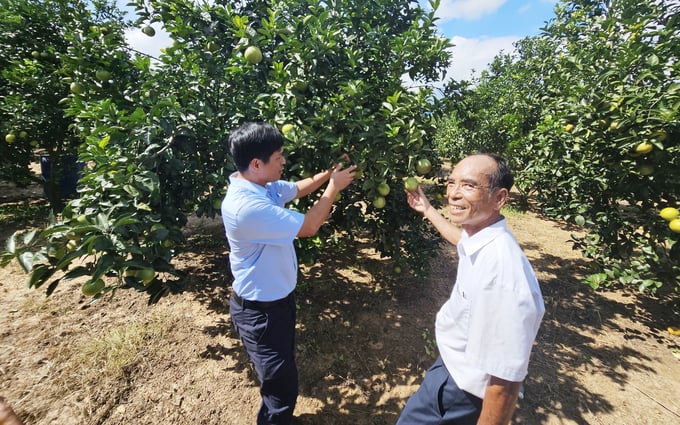
Mr. Be Van Mai (right) introduces the orange farm with an area of more than 7 hectares, cultivated according to VietGAP standards. Photo: Tam Phung.
A little over a year ago, Mr. Ben Van Mai, residing in the Huu Nghi residential group of Viet Trung Farm town, Bo Trach district, Quang Binh province, cultivated over 20 hectares of smallholder rubber. However, a devastating storm wreaked havoc on the rubber plantation, coupled with a drastic decline in rubber prices, leaving him with no returns.
Faced with this setback, Mr. Mai decided to explore alternative crops that could withstand adverse weather conditions and offer substantial income. Packing his belongings and some rice balls, he ventured into provinces like Hoa Binh, Thanh Hoa, Nghe An, and Ha Tinh, all sharing similar weather patterns to his hometown. It was during this exploration that he discovered the resilience and profitability of orange cultivation.
In 2015, Mr. Mai made the bold decision to convert 3 hectares of rubber trees into an orange orchard. To ensure success, he enlisted the expertise of a seasoned farmer from Nghe An province, who lived with him to oversee the orange cultivation.
As the first oranges ripened and the primary orange crop delivered remarkable results, Mr. Mai expanded the orchard further. Presently, his farm spans over 7 hectares and features various orange varieties, including V2, yellow heart, and Xa Doai.
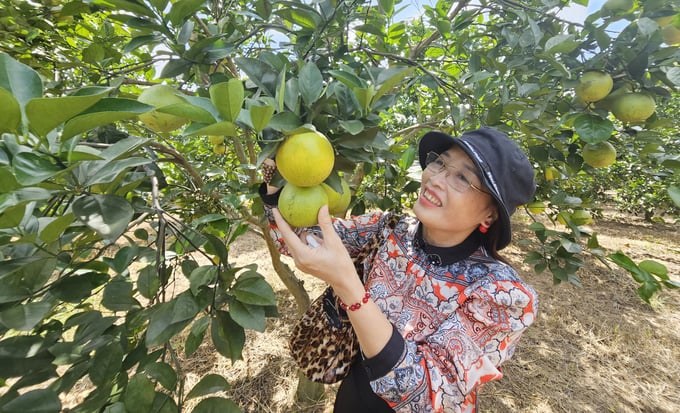
Crispy citrus varieties have high productivity and efficiency at Mr. Mai’s farm. Photo: Tam Phung.
To establish a brand for his orange farm, Mr. Mai drew upon his experience and meticulously adhered to the technical process of growing oranges in accordance with VietGAP standards. He aimed to ensure high productivity and quality by implementing biosecurity methods for pest and insect prevention, prioritizing food safety.
Mr. Mai emphasized the importance of maintaining cleanliness in the product, stating, “No matter the crop, the product must be clean for consumers to choose it. Every few months, I hire workers to clean the orange orchard without resorting to herbicides. During the season, I use approved biological products or pesticides, following regulations to guarantee food safety.”
Applying organic fertilizer to the orange farm has kept it lush green throughout the year, with productivity and output consistently on the rise. Over the past three years, Mr. Mai’s well-fertilized orange trees, now in a healthy age range, have yielded an impressive 150 tons per year.
News of Mr. Mai's successful venture spread to traders from Quang Tri, Ha Tinh provinces, prompting visits to his orchard to observe VietGAP production methods and place substantial orders. When asked about profits, Mr. Mai openly shared, “The minimum selling price is 20 thousand VND/kg, resulting in a family revenue of about 3 billion VND. Deducting production costs of nearly 1 billion, the annual profit exceeds 2 billion.”
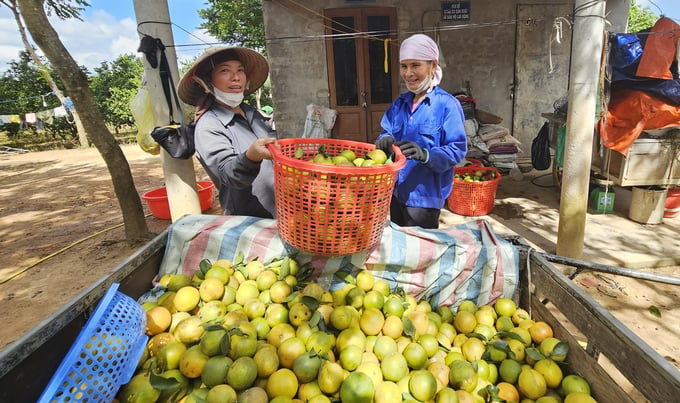
Oranges from Mr. Mai’s farm are ordered by traders to buy from the garden. Photo: Tam Phung.
Mr. Mai recounted attending a congress of the Vietnam Farmers’ Association in Hanoi, where he was invited to taste oranges at the Government Office Guest House. Impressed by the sweet, fragrant, and crunchy taste, he inquired about the orange variety, its origin, and growing process, discovering it to be a crispy citrus variety. Subsequently, Mr. Mai purchased this orange type and cultivated over 1 hectare in a private area, naming it “Government oranges” in gratitude for the knowledge gained at the Government Office Guest House. He explained, “I learned about this precious orange variety thanks to my stay there, so I named it as a reminder and expression of gratitude.”
We went to the orange garden, the rows of oranges were full of vitality and green. It was almost the end of the season but the fruit was still heavy on the branches. Mr. Mai picked some fruits for us to try. The feeling is so different, the orange cloves are crispy, the taste is sweet and the gentle fragrance lingers forever in the sweetness.
“This crispy orange, akin to lemon, is priced twice as high as regular oranges, fetching no less than 40,000 VND per kilo. While many traders express interest, I’m currently focusing on retail sales and haven’t committed to larger-scale deals. Let people savor these delicious oranges to appreciate them fully,” Mr. Mai explained.
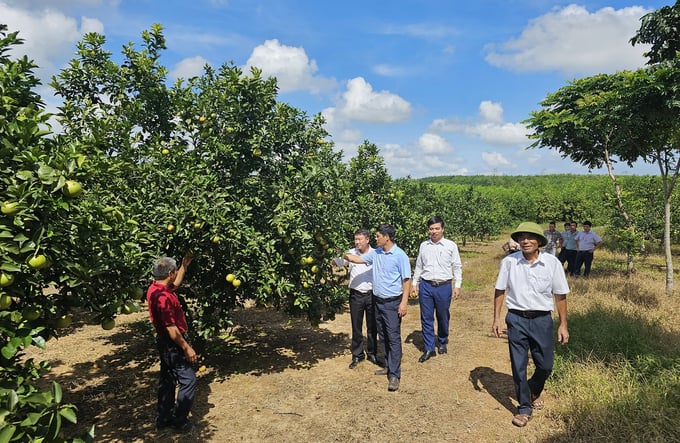
Numerous orange cultivators from different regions visit Mr. Mai’s farm to glean insights and learn from his orange-growing expertise. Photo: Tam Phung.
Looking ahead, Mr. Mai disclosed plans to further expand the orchard next year, introducing more varieties of crispy citrus. “While maintaining the same area and farming process, this Government orange variety boasts high yields and double the income, making it my focal point for expansion. However, ‘'l'll gradually increase the area in line with a well-thought-out roadmap, ensuring proper production through clean, organic practices,” Mr. Mai added.
Diversifying his agricultural pursuits, Mr. Mai has dedicated nearly 2 hectares to pepper cultivation. Currently, the pepper vines have fully climbed the pillars and yielded initial batches. According to Mr. Mai, pepper trees prove highly effective, particularly in curbing certain pests and butterflies responsible for diseases in orange trees.
In the quest for excellence, Mr. Mai’s farm is in the process of obtaining barcodes and establishing a traceability system for orange products. “Our farm’s foremost priority is to deliver clean, organically produced goods. Only then can we achieve sustainable development and confidently bring our products to the market,” Mr. Mai expressed with enthusiasm.
Translated by Quynh Chi
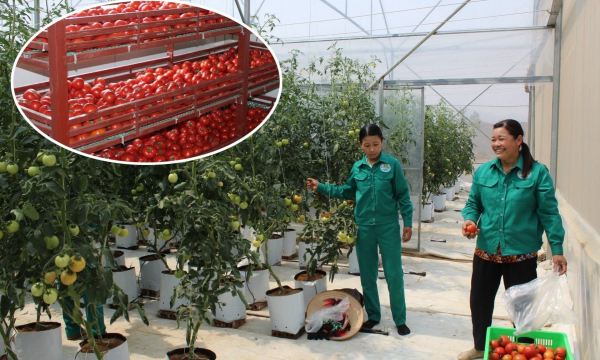
(VAN) The greenhouse complex stretches along the undulating hills, once abandoned, now serving as a source of fresh vegetables for over 16,000 students in the district.
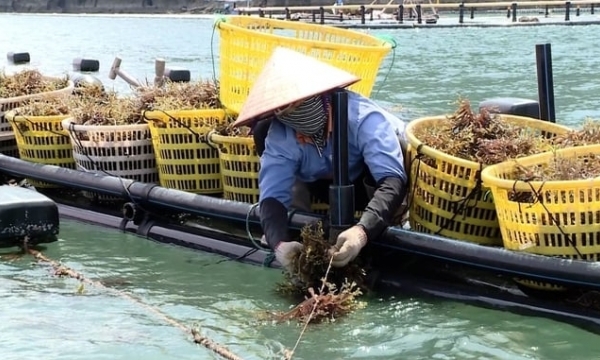
(VAN) Seaweed and marine algae have advantages in environmental protection and sustainable economic development, meeting food needs with uses in other fields
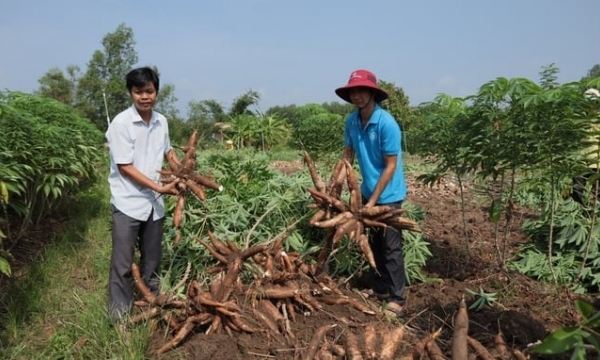
(VAN) In Tay Ninh, efficient irrigation has helped increase cassava yields by 30 - 50% (reaching 40 - 50 tons/ha), reducing irrigation water usage by 40%
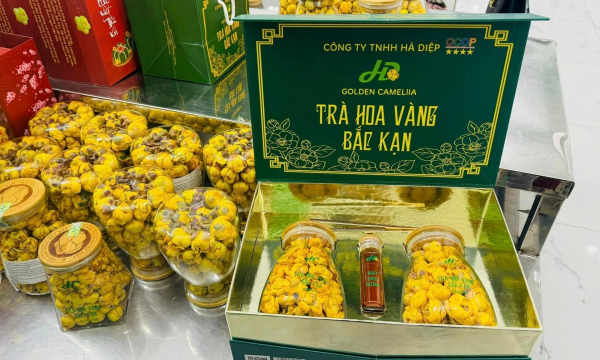
(VAN) In 2024, Bac Kan province has acquired investments for 10 projects in the agriculture and forestry sectors, with a particular focus on the production and processing of medicinal plants.
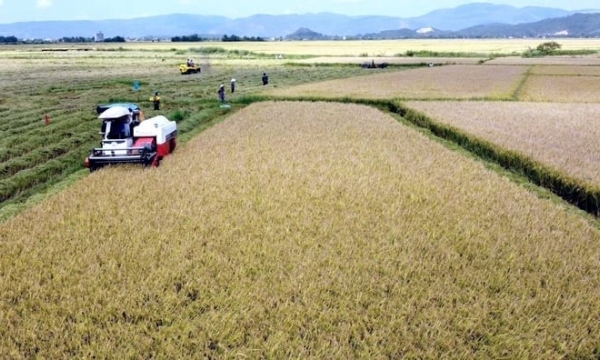
(VAN) Phu Yen is one of the localities with the conditions to develop high-tech agriculture, seafood processing and aquaculture.
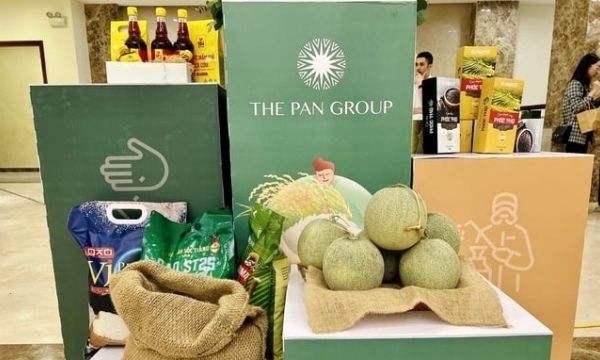
(VAN) In response to climate change concerns and economic challenges, PAN Group sets target of 12% revenue growth with natural agriculture solutions.
/2024/04/26/4910-3-173953_784.jpg)
(VAN) The Nestlé Net Zero Roadmap launched in 2020 has helped the Group transform its business operations and implement measures to reduce greenhouse gas emissions in all fields.